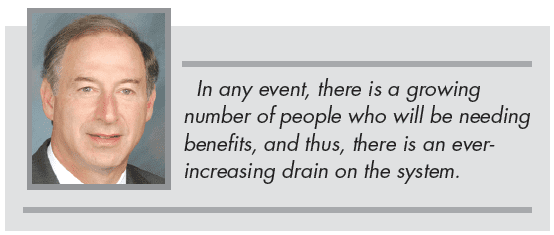Restoring Veterans’ Benefits – Proposed Federal Legislation Could Bring Financial Changes
Despite the high number of veterans with disabilities separating from service, the military is still one of the largest employers in the U.S. Although the number of new veterans is increasing, and military benefits are also increasing, there are still many older veterans who are either disabled or passing away and leaving a disabled spouse. These veterans are entitled to benefits known as either improved pension or aid and attendance.
There are certain requirements to obtain those benefits. Physical requirements must be met to determine whether care may be required at home or in an assisted-living facility. Financial requirements are also assessed regarding income and current assets. In any event, there is a growing number of people who will be needing benefits, and thus, there is an ever-increasing drain on the system.
In an effort to close that funding gap, the government is considering a bill pending in Congress relative to the benefits provided to veterans. It is known as the Comprehensive Veteran’s Health and Benefits and Military Retirement Pay Restoration Act. It expands veterans’ healthcare and education benefits, as well as job-assistance programs.

In attempting to provide funds in order to pay for these additional benefits, the bill includes a 36-month look-back period and penalty-provision language. This basically means that there will be no benefits for certain things if a transfer has been made within three years. This is similar to the federal Medicaid program, wherein a person may not transfer assets for five years prior to obtaining benefits in most situations.
However, the Medicaid program is a combined federal and state program, and many states administer this program according to their own rules and regulations. The veterans’ benefit program would be only a federal program; therefore, there would be a mandatory waiting period for an individual to get benefits if they had gifted any assets away.
In addition, the bill includes several amendments, one of which is proposed by the National Academy of Elder Law Attorneys (NAELA), allowing a partial return of assets so that, if a veteran gave away some money and spent some money on himself, there would be a shorter waiting period, based on the funds that may have been returned to the veteran. Another amendment eliminates the spouse penalty. This means that, if one spouse gave away money, it may not be imputed against the other spouse. Finally, there is an undue-hardship waiver within this bill, which means that if a veteran transferred funds and then needed care within the three years, there may be grounds for a hardship waiver if the funds could not be returned to the veteran.
NAELA staff has also spoken with the staff of the Senate Aging Committee, submitted written testimony to the Senate Veterans Affairs Committee regarding VA benefits, and proposed legislation. If you are a veteran or veteran’s spouse, you may want to contact your senator and representative in an attempt to persuade Congress to minimize any penalties that might be imposed.
Additional proposed language includes the Disabled Military Child Protection Act. Under current law, if a veteran has a disabled child and dies, that child may be entitled to benefits. Unfortunately, when the disabled child receives these benefits, it may put them over the threshold to qualify for other federal benefits. Many groups of disabled individuals, including NAELA (whose members also support disabled and special-needs individuals), want to allow individuals to receive these benefits without offsetting others.
The hope is that these disabled individuals will be allowed to receive monthly annuity survivor-benefit payments through the establishment of a supplemental or special-needs trust. This would allow the assets to accumulate for the sole benefit of that disabled person and would not disqualify them for other benefits, such as housing, Supplemental Security Income, food stamps, etc.
While there would be a potential cost to the government for this exception, it is a relatively small cost to other departments such as Social Security and Medicaid. The proposal carries a $50 million cost over 10 years, which is relatively nominal compared to other costs and spending of the government, and the relatively small number of beneficiaries would certainly benefit from this proposed act.
These are a few of the issues being contemplated by Congress. As we all know, it takes significant time and effort to get a bill passed, but since the government is looking to trim costs and save money, it is not willing to expand very many benefit programs.
Therefore, if you are a veteran, a family member of a veteran, or an advocate on behalf of veterans, it is important to stay up to date on these proposals and also contact your elected officials to inform them of where you stand on these important proposed laws. v
Attorney Hyman G. Darling is chairman of Bacon Wilson, P.C.’s Estate Planning and Elder Law departments. His areas of expertise include all areas of estate planning, probate, and elder law. He is a frequent lecturer on various estate-planning and elder-law topics at local and national levels, and he hosts a popular estate-planning blog at bwlaw.blogs.com/estate_

Comments are closed.